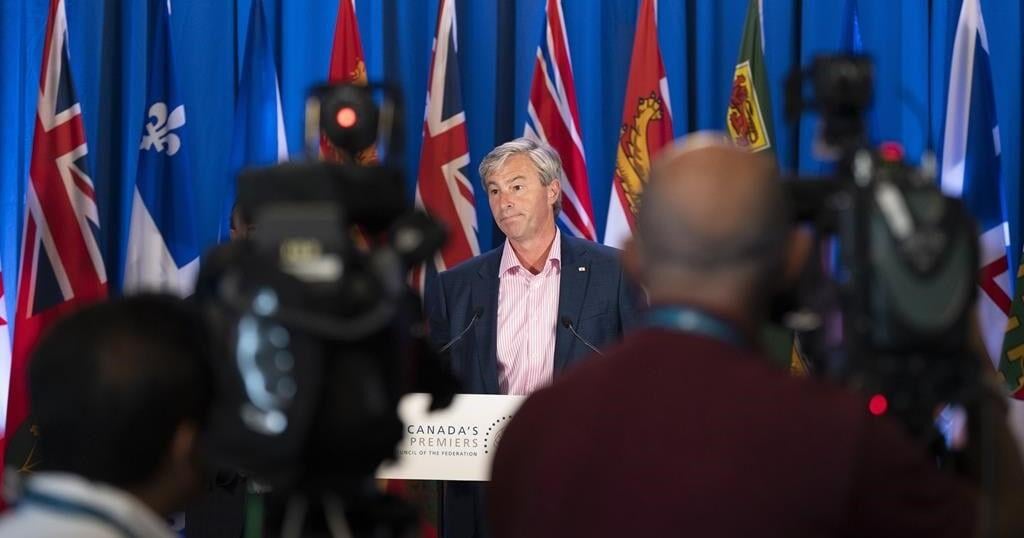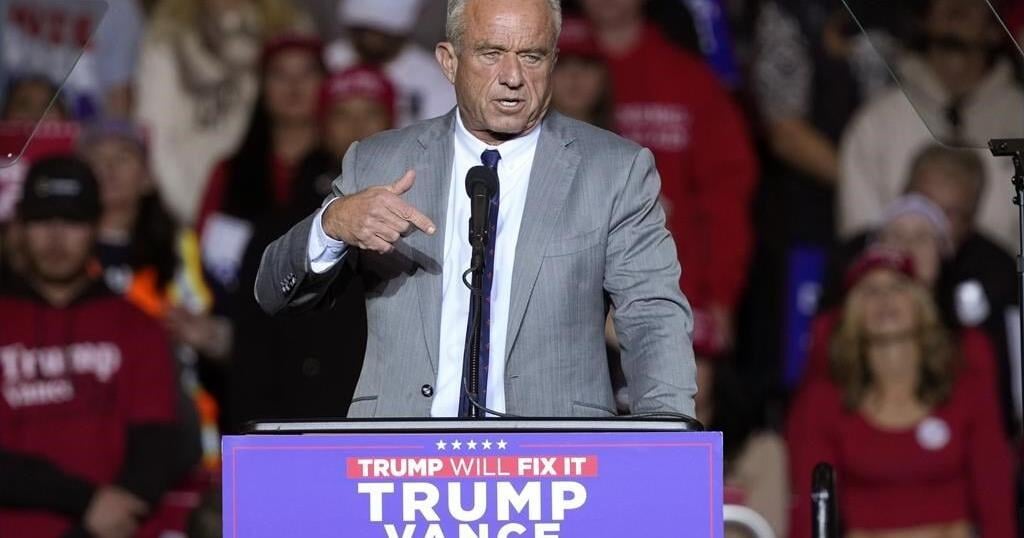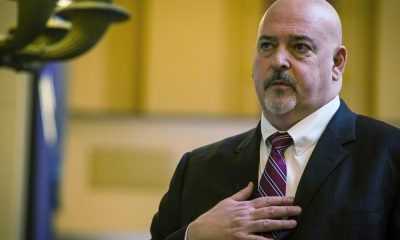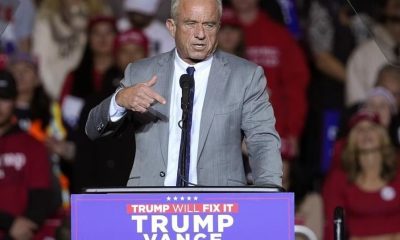HALIFAX – The Nova Scotia government is offering to pay up to $15,000 a year into a new retirement benefits program for doctors in hopes the public money will keep more physicians in the province.
Premier Tim Houston announced the new program Wednesday, saying the annual contributions will be available to Nova Scotia’s roughly 3,000 doctors at an estimated cost to the province of up to $22 million for the 2024 tax year, with that number expected to grow as more physicians sign on.
The annual retirement benefit top-ups were cited by Houston as evidence his party is fulfilling an election platform promise to create a “retirement fund” for doctors.
He said the new program is designed to “recognize the high cost of establishing a practice coming right out of (medical) school,” and to retain doctors as they settle into careers.
“We’re not just competing with other provinces. We’re competing with the rest of the world and our recruitment and retention efforts must reflect that,” said the premier, noting that British Columbia has a similar program.
Dr. Gehad Gobran, president of Doctors Nova Scotia, said during a news conference that the program is expected to attract new physicians because in the first five years of practice they can receive $5,000 annually from the government to put toward their retirement savings without making matching contributions. After five years, they must start making contributions to receive the public top-up.
Doctors who have practised between five and 15 years can receive up to $10,000 annually, if they’ve put in matching funds, while doctors with over 15 years of practice can receive up to $15,000 annually, provided they’ve contributed that amount.
“We’ve been waiting for this a long, long time … this will really help in hiring and retaining physicians here in Nova Scotia,” Gobran said.
Asked what independent evidence exists that retirement programs result in retaining doctors, Gobran replied, “I’m not sure about the evidence as such, but I will tell you that when I started here years ago, I didn’t do any contribution to retirement.”
“When residents graduate, they have a lot to pay on their tuition fees and they don’t pay attention to their (retirement) pension. So having the support of the government, I think that’s a great thing,” Gobran said.
Dana MacKenzie, deputy minister of health, said during a briefing on Wednesday that she didn’t know of independent studies that indicate retirement funding is likely to retain and attract doctors. However, she said the department believed the new program would attract doctors as “these retirement funds (for doctors) aren’t pervasive across the country,” other than in British Columbia.
The Progressive Conservatives have made health care their prime focus over the past four years, but as of this June there were still 160,000 people on a wait-list for primary care.
Houston said the retirement contributions were just one among several measures aimed at reducing the doctor shortages.
He cited a recent announcement that the province will create a new assessment centre for foreign-trained doctors to speed up their certification, with the aim of bringing in 45 more physicians a year. In addition, the province has announced that Cape Breton University will open a medical school, with up to 30 new physicians graduating each year.
On Wednesday, the opposition parties asked why there weren’t more details of the new retirement program, such as projections on what its annual cost will be beyond 2024.
Claudia Chender, leader of the NDP, said she had only seen a “ballpark figure for Year 1” of the program, and would have liked to have heard a lot more details about fiscal projections.
Kelly Regan, the Liberal Party’s health critic, said she wonders whether public funds will go to retirement, or if doctors might just use the contributions for other purposes.
Health Department officials said doctors can invest the money in their choice of retirement funds, whether they be tax-free savings accounts, RRSPs or an independent pension fund. However, unlike locked-in retirement funds, money can be removed from tax-free savings accounts and from RRSPs at any time.
“This won’t necessarily go to a physicians’ retirement because it’s not locked in,” Regan said. “This is an additional payment to physicians, and after the first five years it will be matching contributions. But this is not a pension fund.”
Angela Purcell, director of physician services with the Health Department, estimated during the briefing that the approximate gross income for a family practitioner in Nova Scotia is between $340,000 and $390,000, but this is reduced by office and operating expenses.
Houston said the retirement top-ups were nonetheless a necessary part of a series of measures to keep doctors in Nova Scotia.
“This is something we can layer onto the overall compensation package and send the message that we want you here,” he said.
The program begins this year, with physicians required to show their contributions by the end of March 2025, while physicians with less than five years of practice can also apply for the funds by that date.
This report by The Canadian Press was first published Oct. 16, 2024.






















